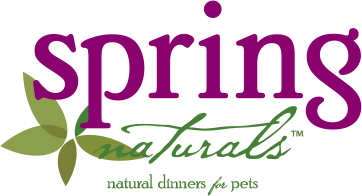
How to Promote a Healthy Coat
(Dr. Iulia Miha, DVM) Pets have so many qualities to admire. Their eyes have remarkable colors, they have quirky personalities, but their most defining feature may be their coat! (For those with hair, of course!)
Our pet's fur should be important to us as owners, not only from an aesthetic point of view but also from a health perspective. Their coats provide a visual for their health and changes can tell us if our pet has a health problem. A healthy coat must be shiny, supple, and will have a texture specific to their breed. When the pet is sick or receives an inadequate diet, their coat can have an abnormal appearance.
If your pet is healthy and their coat is still not as silky as you would like, or maybe you want to take your pet to a dog or cat show, then there are some methods to promote healthy fur.
- Diet
As we mentioned before, fur is like a business card for your pet. A pet's diet is not only important for the appearance of their fur, but it has benefits for the entire body.
To find out if your dog or cat’s diet is of high quality, carefully read the ingredients on their food labels. A high quality diet should contain the following ingredients: proteins, vitamins, and minerals.
Proteins are the foundation of a healthy body and, therefore, implicitly of healthy fur. Hair is made up of 97% of keratin (a fibrous protein). Keratin is produced by the body from other types of animal protein, such as sulfur amino acids.
Of the total proteins pets consume daily, approximately 30% are used by their bodies for their skin and coat.
Dry pet food contains animal and plant-based protein (cereals, vegetables). However, the most valuable are the animal ones because they contain all the essential amino acids pets need. For dogs, the essential amino acids are the following: arginine, histidine, isoleucine, leucine, lysine, methionine, phenylalanine, threonine, tryptophan, and valine. In addition to all of these, cats also need taurine because they can’t produce it themselves.
- Vitamins
Sometimes, supplements can do wonders for your pet's fur. But even if they have benefits on the regeneration and appearance of the coat, they give temporary results. However, it is advisable not to administer supplements without consulting the veterinarian first because there is a risk of causing hypervitaminosis, which can lead to serious health problems.
Among the most important vitamins for your pet's coat is biotin or vitamin H. This vitamin helps with hair growth and resistance, giving it a silky look. Being water-soluble (i.e., it dissolves in water), it is eliminated through the urine, and the risk of overdose is reduced. Biotin can be given long-term. If your dog or cat suffers from a biotin deficiency, you will notice premature whitening of the fur.
Other important vitamins for skin and hair are vitamin A, vitamin E, and vitamin C.
Vitamin A is found in some organs (e.g., the liver) but also in vegetables. It is essential for the formation of keratin and plays an important role in the regulation of sebum secretion.
Vitamin E has a strong antioxidant effect and helps maintain skin health.
Vitamin C helps to grow hair follicles and maintain skin elasticity due to its role in the synthesis of collagen (the most abundant structural protein in the body).
- Minerals
Among the minerals that have a role in the health of skin and hair are zinc, selenium, and copper.
Zinc helps to reduce skin infections and inflammation. Zinc deficiency affects the follicles during the hair growth phase. If your dog or cat suffers from a zinc deficiency, they will shed excessively, have crusts on the skin and itching.
Selenium is a mineral that has an important role in the keratinization phase of the hair. Selenium deficiency leads to excessive shedding and hair loss.
Copper helps in the production of melanin and hair pigments. A copper deficiency can result in a matted coat.
Fortunately, at the present time, if your dog or cat is facing hair and skin problems, there is a wide range of vitamin and mineral supplements that can help.
- Omega 3 and 6 Fatty Acids
The animal body does not know how to produce omega-3 and omega-6 fatty acids, so food is its only source. Crustaceans, fish oil, and fish meat are the best and richest sources of essential omega-3 fatty acids. Although some vegetable oils also contain these acids (e.g., sunflower oil, soybean oil), their quantities are not balanced, and their assimilation is deficient.
Omega-6 fatty acids potentiate the beneficial effect of omega-3 fatty acids. These acids are found in chicken meat and some vegetable oils.
Omega-3 and omega-6 fatty acids have a multitude of benefits for the entire body. They help reduce inflammation and itching and keep the skin elastic and healthy. In addition, they can have benefits for the heart, joints, and brain.
- Bathing and Brushing
Bathing and brushing are two actions that will help your pet to have a silky coat and healthy skin.
In dogs, bathing is recommended to be done occasionally, every 1-3 months (so as not to destroy the natural oils of the skin), if they are not dirty and healthy. If the natural oils of the skin are missing, your pet will have dry skin without elasticity, which will make it prone to infections. When the skin is not healthy, the hair will not be healthy either and will suffer.
Cats are animals that clean themselves often. Depending on how often your cat grooms themselves, you can bathe them every 4-6 weeks to every 3-4 months. Long-haired cats should be bathed every couple of months to minimize matting.
Brushing should be done regularly to remove dead hair and dirt and to stimulate blood circulation. You should choose the brush according to the length, texture, and characteristics of your pet's hair.
- Flea and Tick Control and Deworming
In order for your pet to have strong, healthy, and silky fur, they must be flea and tick-free and dewormed regularly. Internal and external parasites can put your pet's life in danger and even some of them can also be transmitted to humans. Therefore, these must be treated.
- Speak With Your Vet
Whenever your pet has a health problem, shows changes in their behavior, or even when you need advice, it is recommended to talk to your veterinarian. They can recommend the best products and give you the best qualified advice, even when it's just about maintaining the health of your pet's fur.
Conclusion
Taking care of your pet also means paying attention to everything related to the health of the skin and fur. Your pet's fur can reflect their state of health. A healthy pet will have soft, shiny, supple, and silky hair. In order for your cat or dog to have healthy fur, you can give them a quality diet rich in proteins, bathe and brush regularly, treat internal and external parasites regularly, and consult with your veterinarian to discuss vitamin-mineral supplements and omega 3 and 6.
Dr. Iuliana Mihai, DVM, Masters In Small Animals And Equines Pathology
Iuliana graduated from the University of Agronomical Sciences and Veterinary Medicine in 2012, Romania. She has a Master’s degree in Small Animal and Equines Pathology and a strong affinity for Veterinary Parasitology and Laboratory. In 2013 she started her Ph.D. in epithelial cancer in dogs and cats. She volunteered at the faculty’s clinic in her 3rd year of study, and continued her career in small animal pathology and laboratory. She has one cat and eleven rats. Her interests outside of work include traveling, writing, and crafting.

Post a Comment!